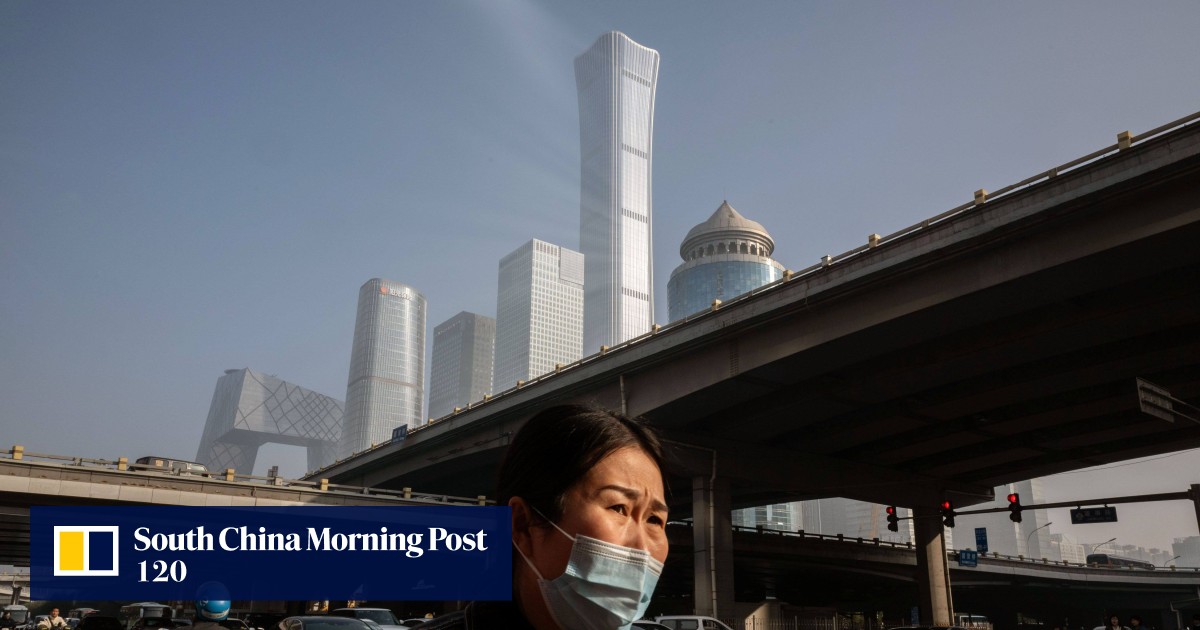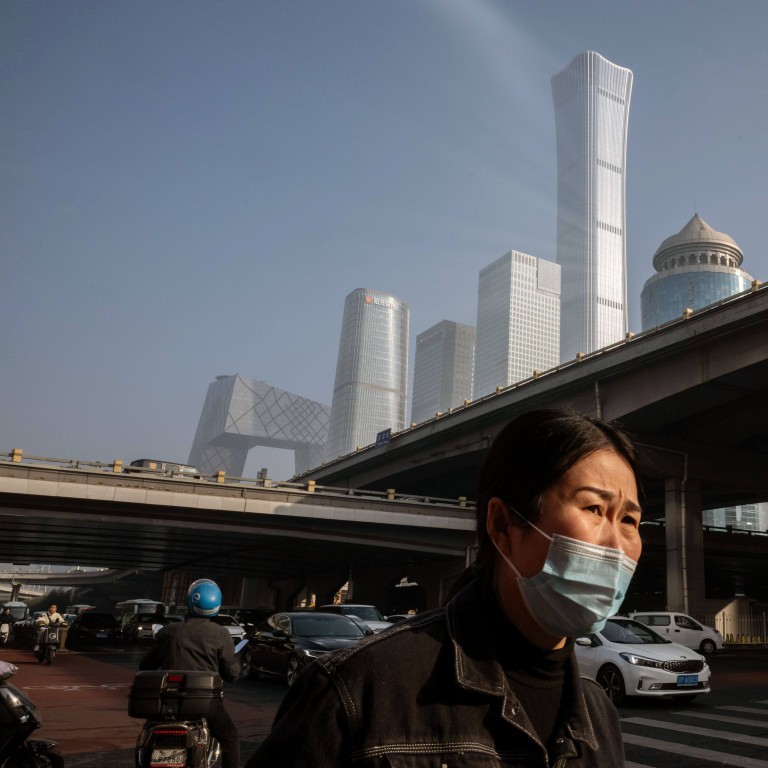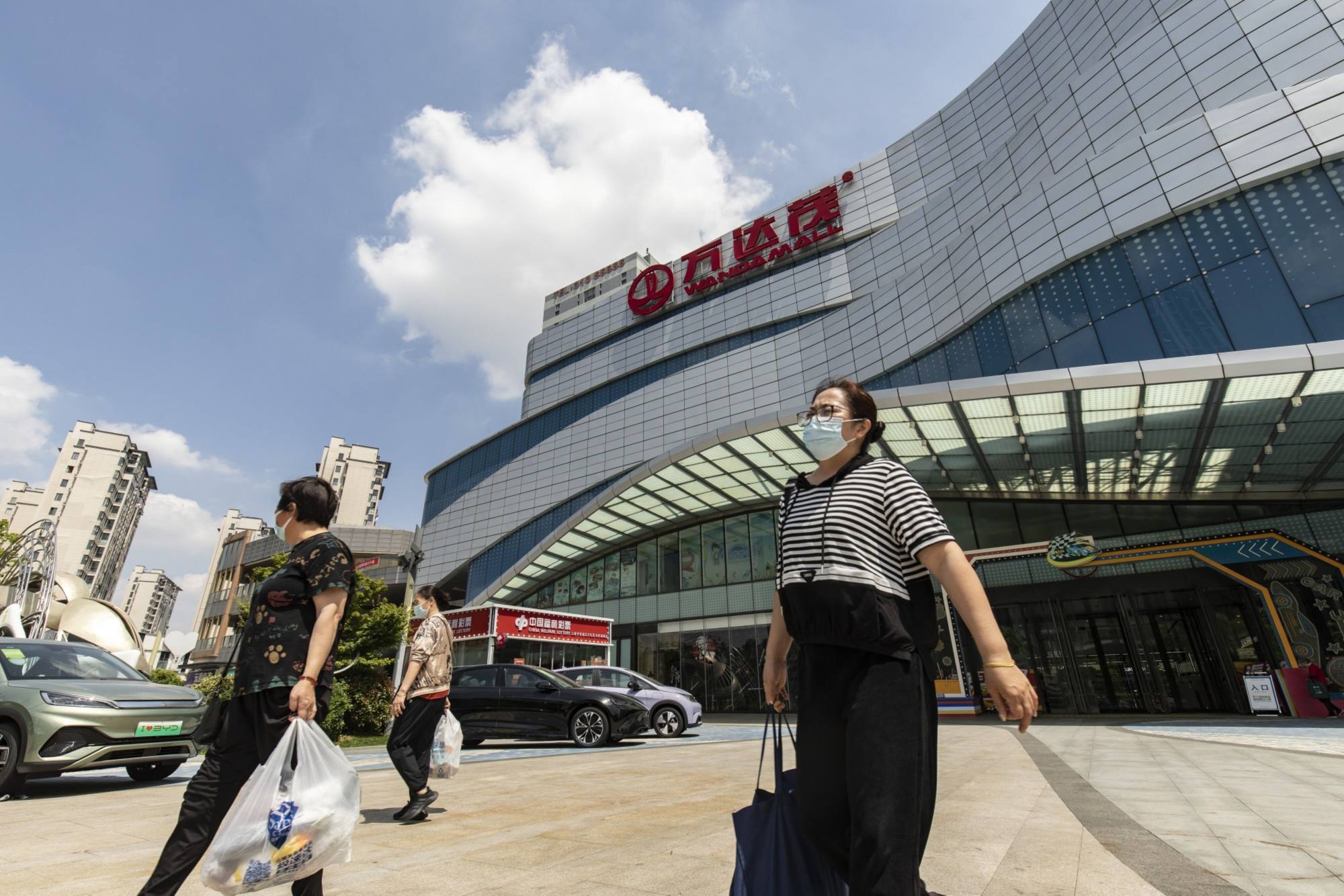Hamartia Antidote
ELITE MEMBER

- Joined
- Nov 17, 2013
- Messages
- 35,188
- Reaction score
- 30
- Country
- Location

China property distress drives up Asian junk bond default rates: Morningstar
Asian bonds nearing distressed territory have almost doubled since mid-2021 mainly due to China’s property sector which is facing economic and liquidity challenges, according to a Morningstar report.
- The annual default rate in the Asian high-yield universe rose to 16.8 per cent in 2022 from 13.2 per cent in 2021, the firm said in a report on Wednesday
- Bonds rated below B comprised 4.6 per cent of the high-yield bond universe in September, versus 2.5 per cent a year ago

A morning commuter in the central business district in Beijing, China
Asian bonds with credit ratings near distressed territory have grown as a proportion of the regional high-yield universe since mid-2021, according to a Morningstar report, primarily on account of China’s property sector which is facing economic and liquidity challenges.
Bonds rated below B comprised 4.6 per cent of the high-yield bond universe in September, versus 2.55 per cent a year ago, the firm said in a report on Wednesday, citing JPMorgan data. Bonds rated below BBB- are considered high yield bonds.
“The elevated level of defaults can be chiefly attributed to the distress in the Chinese property sector, which has suffered due to macroeconomic headwinds, slumping property sales, and mounting liquidity challenges,” Arvind Subramaniam, senior analyst at Morningstar, said in the report.
China’s property sector has racked up US$114 billion of cumulative defaults since the beginning of 2021, and that accounted for 94 per cent of total defaults in Asia over that time frame, according to JPMorgan. Another US$8 billion could still be at risk of default in 2024, analysts including Soo Chong Lim said in a note last week.

The Dalian Wanda Group Qingpu shopping mall in Shanghai, China. Photo: Bloomberg
The intensifying crisis in certain sectors had resulted in an unprecedented level of defaults in Asian high-yield bonds, despite the generally subdued level of global defaults, Morningstar said. The annual default rate in the Asian high-yield universe rose to 16.8 per cent in 2022 from 13.2 per cent in 2021, the report said, referencing JPMorgan data. This is way higher than the historical default rate, which had ranged between 1 per cent and 3.5 per cent since 2009, according to Morningstar.
Cracks in the sector continue to widen, as a key unit of Chinese developer Dalian Wanda this week sought to delay payment on a US$600 million bond due in January amid a liquidity crunch. Fitch Ratings downgraded its issuer rating to C from CC following the announcement.
Meanwhile, Country Garden and Evergrande are in a face-off with creditors over billions of dollars of overdue debt even as they grapple with plunging sales.
“The liquidity of private developers continues to dry up slowly” amid sluggish sales and refinancing difficulties, and their debt repayment ability will remain weak, Gary Ng, senior economist at Natixis said during a media briefing on Tuesday.
Many funds had proactively reduced their holdings in Country Garden bonds, perhaps in anticipation of the company’s deteriorating liquidity position, Subramaniam said. However certain funds chose to increase their positions, “a decision that has since proven to be misguided”, he added.
China’s US dollar-denominated high-yield bonds, dominated by bonds issued by property developers, has handed investors a 22 per cent loss so far this year, after a 33 per cent slump in each of the past two years, according to an ICE Bank of America Index.
